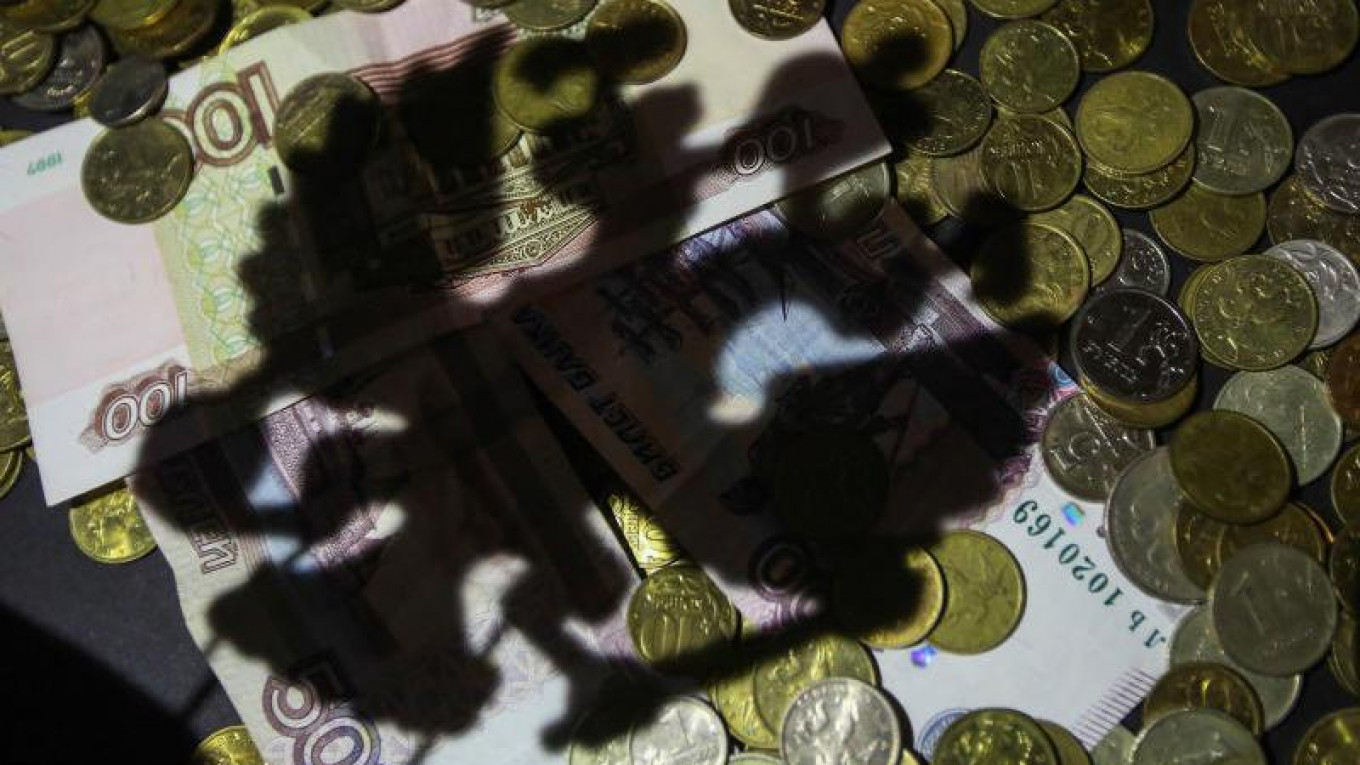The Russian government may restructure the commercial debt held by Russia’s poorest regions, according to Deputy Prime Minister Dmitry Kozak, who is responsible for regional policy. “Preliminary findings compel us to think seriously about a scheme for supporting the regions,'' he said, explaining that leaders would reach a final decision on the issue on Sept. 22-23.
In addition, the government might redistribute taxes between the federal center and the regions and eliminate some benefits established at the federal level for regional and municipal taxes, Kozak said. That is one of the sources of financing the deficit and refinancing debt, he said.
The list of regions with burdensome debt has not changed since last year, according to Independent Institute for Social Policy director Natalya Zubarevich. She said that 12 regions hold debt equaling 80 to 100 percent of their revenue, seven hold debt totaling 100 to 120 percent of revenue, Mordovia’s debt equals 185 percent of revenue, and in the first half of this year, the regions held an overall debt burden equal to 35 percent of revenue.
The cost to the regions for servicing their debt to the state has doubled over the last three years, and the cost of paying down the debt has risen 360 percent to 2.3 trillion rubles, said Accounting Chamber chairperson Tatiana Golikova. That total is almost equivalent to the size of the debt itself. The regions are operating with a “cash gap,” Golikova concluded.
The total debt for the regions has not changed since the beginning of the year, totaling 2.66 billion rubles on Aug. 1. The structure of that debt, however, did improve: the share of high-interest bank loans decreased from 44 to 35 percent, and the share of ultra low-interest government loans increased from 34 percent to 45 percent because of additional credit that the Finance Ministry extended, said Zubarevich.
This is not the first time this has happened, however: the debt structure improved in summer 2015, but by the end of the year, the regions had to take out high-interest bank loans to fulfill their obligations. The regions have already received 220 billion rubles, or 70 percent of the 310 billion rubles in cheap federal loans that Moscow had promised them for 2016, according to Finance Ministry data.
Revenues and subsidies are falling short in the regions, Golikova said. It is difficult for the regions to avoid falling into debt because their nominal incomes rose by only 2.7 percent, whereas expenses grew by 5.7 percent, Zubarevich writes. The regions actually had an overall surplus of 276.6 billion rubles during the first half of the year due to enormous budget surpluses in Moscow and Sakhalin, and significant surpluses in the Khanty-Mansiisk autonomous district, the Tyumen and Leningrad regions, and the city of St. Petersburg. However, the overwhelming majority of regions experienced deficits that will increase in November and December as expenses rise.
The volatility of fiscal transfers has also contributed to the increased debt in the regions, said Andrei Chernyavsky of the Higher School of Economics Development Center. Such transfers dropped by 12 percent in the first half of the year and continue to drop, according to the Finance Ministry. Fiscal transfers could fall by as much as 15.5 percent in 2017, Finance Ministry intergovernmental relations department representative Larisa Yeroshkina said earlier.
A Message from The Moscow Times:
Dear readers,
We are facing unprecedented challenges. Russia's Prosecutor General's Office has designated The Moscow Times as an "undesirable" organization, criminalizing our work and putting our staff at risk of prosecution. This follows our earlier unjust labeling as a "foreign agent."
These actions are direct attempts to silence independent journalism in Russia. The authorities claim our work "discredits the decisions of the Russian leadership." We see things differently: we strive to provide accurate, unbiased reporting on Russia.
We, the journalists of The Moscow Times, refuse to be silenced. But to continue our work, we need your help.
Your support, no matter how small, makes a world of difference. If you can, please support us monthly starting from just $2. It's quick to set up, and every contribution makes a significant impact.
By supporting The Moscow Times, you're defending open, independent journalism in the face of repression. Thank you for standing with us.
Remind me later.






